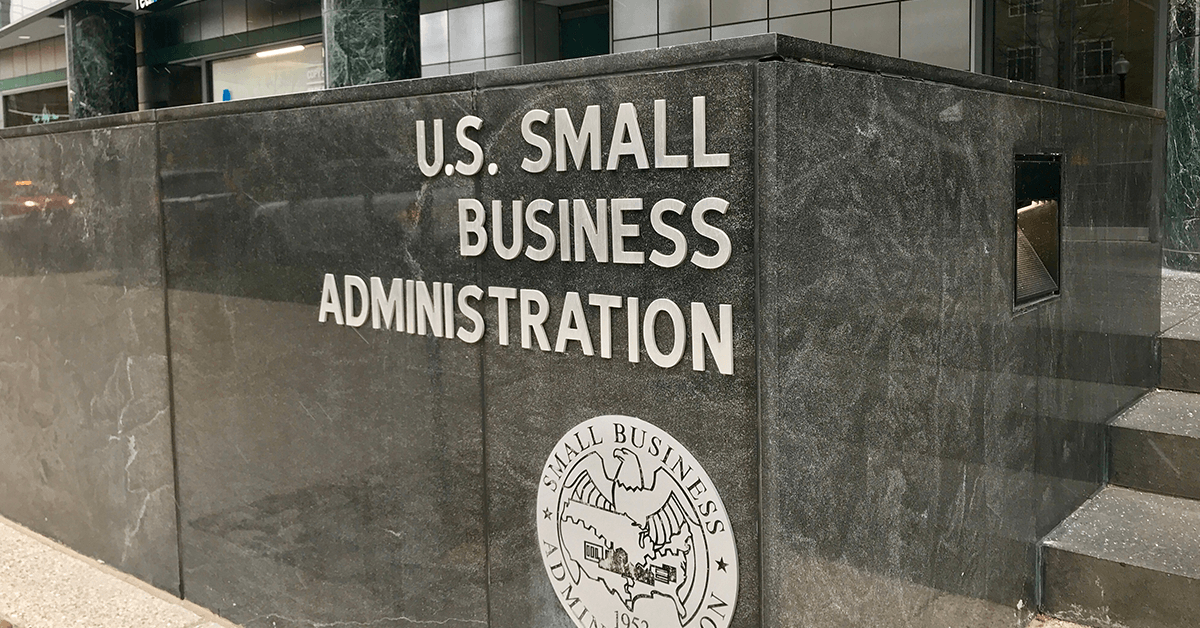
The government contracting industry can be quite competitive, especially for smaller players. That said, the Small Business Administration (SBA) levels the playing field for smaller businesses, enabling them to win contracts, expand their opportunities and deliver their services to the government.
If you want to learn more about SBA government contracting, then this article is for you.
An Introduction to the Small Business Administration

The United States Small Business Administration is an independent agency that supports small businesses. Established in 1953 by President Eisenhower with the signing of the Small Business Act, the agency aims to promote the interests of small businesses and enhance their marketplace competition.
SBA provides small businesses with tools, capabilities and programs to advocate growth in the competitive government contracting marketplace.
Below are the primary services the agency offers to small businesses:
• Access to Capital — SBA provides financial resources through small loans, microlending loan programs for disasters, microloans and loan guarantees. Funding is provided to small businesses that aren’t qualified for financing by bigger loan providers.
• Contracting — SBA allocates 23 percent of its funds to small businesses. Three percent of this allocation is intended for disabled and veteran business owners, while five percent is reserved for women entrepreneurs.
• Entrepreneurial Development — SBA provides counseling services and low-cost training to new and existing entrepreneurs in over 1,000 locations nationwide. Additionally, it offers mentorship programs where entrepreneurs can network with each other.
• Advocacy — SBA champions small businesses by reviewing legislation and defending their interests at state and federal levels.
What Are the Criteria for Small Businesses?
The SBA implements a table of size standards to determine whether a business is qualified to register and apply for loan and funding programs. These standards are based on the regulations set forth by the Code of Federal Regulations (CFR).
According to Title 13 Part 121 of the CFR, the size standards of a business are calculated based on:
• Affiliates — Affiliation with another business is crucial to determining a business’s size. It is defined by an external business’s ability to control other organizations, whether exercised or not. Affiliation may also exist when one or more parties own a considerable share portion than other shareholders.
• Annual receipts — Annual receipts refer to the total income plus the cost of goods sold. For SBA government contracting, annual receipts are averaged over a business’s last five complete fiscal years.
• Employee calculation — Employee calculation refers to the average number of people employed for each pay period of a business’s most recent 24 calendar months. Any person on payroll is counted as an employee, regardless of the total hours they’ve worked or whether they’re temporary or tenured employees.
If you’re starting out in government contracting, the SBA created the Size Standards Tool to help you calculate and assess whether your business is qualified to be a small business.
Other Standards to Consider
When registering your business with the SBA, be sure to also consider that it must:
- Be a for-profit business of any legal structure
- Be independently owned and operated
- Be physically located and operate in the United States or in its territories
- Not be nationally dominant in its field
SBA Government Contracting Basic Requirements

Now that you know which standards will qualify your business as part of the SBA, let’s explore the prerequisites for SBA government contracting.
Register with SAM
Signing up for a System for Award Management (SAM) is the first step to being qualified for government contracting. SAM is the database where government agencies search and source contractors.
Your SAM profile certifies that your business is eligible for contracts set aside for small businesses. It also validates whether your business is veteran-owned, disadvantaged, women-owned or located in an underserved area, thus qualifying you for agreements under an SBA government contracting program.
Register for ID Numbers
You’ll need to register for the following identification numbers before you can start delivering your goods and services to the government:
Unique Entity Identifier
A Unique Entity Identifier (UEI) is a special 12-character, alpha-numeric value that qualifies contractors to bid on government proposals. You’ll get your UEI when you register for SAM.
UEI enables the government to streamline the business identification and validation processes and reduce the burden of contractors in doing business with the federal government.
NAICS Code
The North American Industry Classification System (NAICS) is a set of standards that federal agencies use to classify businesses based on their products or services. The NAICS code is crucial for determining your business size via the SBA’s Size Standards Tool.
Generally, a business has only one primary NAICS code, but it can have more than one if it offers a variety of products and services.
Comply with Federal Contracting Regulations
Small business contractors must comply with the following regulations to conduct business with the government.
FAR
The Federal Acquisition Regulation (FAR) is a set of rules that encompasses all aspects of the purchasing processes of agencies under the executive branch. It ensures that agencies deliver excellent services and goods to the government while maintaining public trust and confidence and fulfilling policy standards.
CFR
Small business owners must comply with the CFR, as these standards govern the SBA’s contracting programs. Clauses on these programs are outlined in Part 125.
Labor Standard Statutes
Government contractors are required to comply with Labor Standard Statutes, such as the Service Contract Act, Contract Work Hours Act and Safety Standards Act.
Provisions under these acts protect the integrity of the government acquisition process. These include:
- Officials Not to Benefit clause
- Anti-kickback clause
- Gratuities clause
- organizational conflict of interest provisions
Check Cybersecurity Capabilities
Small businesses planning to contract with the Department of Defense must check that their cybersecurity capabilities are strong enough to safeguard crucial systems and data. They’ll need to submit proposals outlining their Cybersecurity Maturity Model Certification (CMMC) level to the DOD to see if they can meet the agency’s requirements for work.
Small business owners may use Project Spectrum, a free platform that provides tools and training needed to contract with the DOD. It also assists in getting CMMC certification, educates users on risk management and boosts cybersecurity hygiene.
Frequently Asked Questions
What Are the Different Types of SBA Contracts?
The two most common contracts for small businesses are competitive and sole-source set-aside contracts.
Note that some set-aside contracts are reserved for small businesses in certain socio-economic categories only.
Where Does SBA Get its Funding?
SBA gets its funding from the annual budget approved by the federal government. The budget goes toward salaries, grants, loan programs and administrative costs.
You might also want to read: Beginner’s Guide to Becoming a Government Contractor




